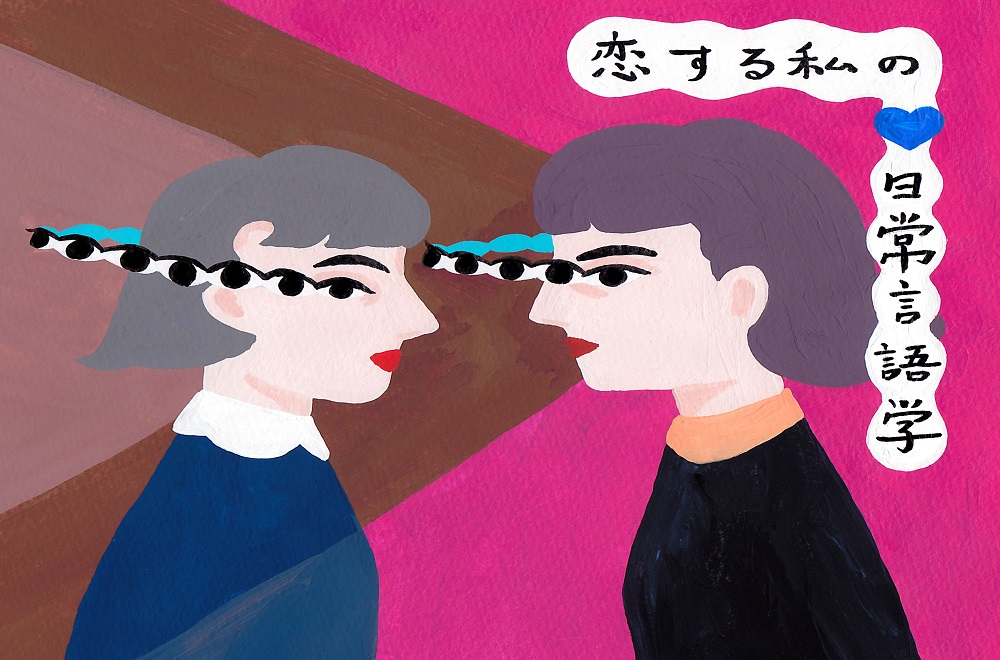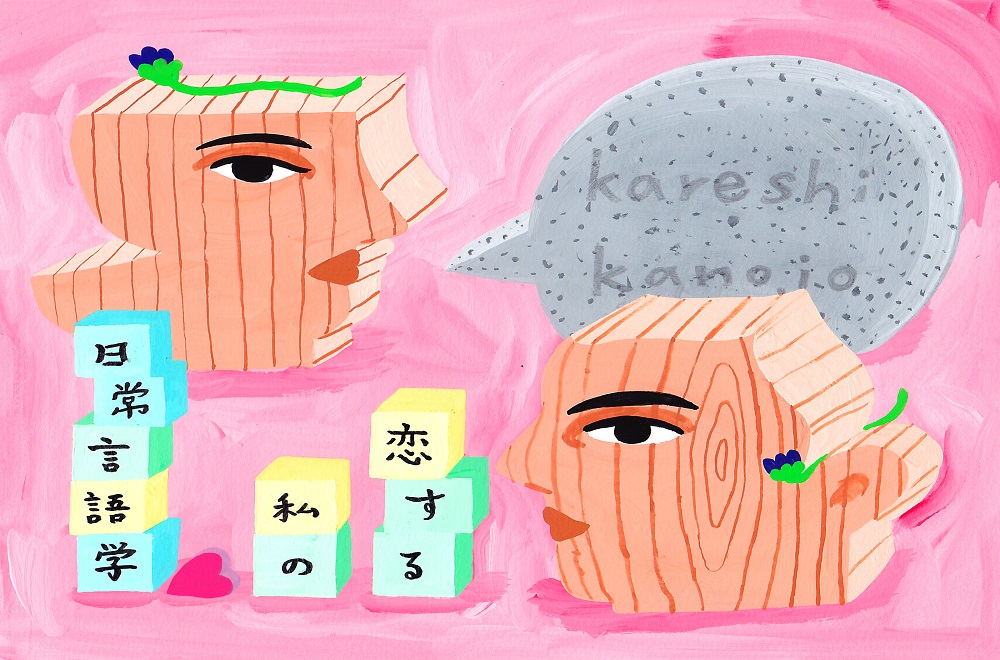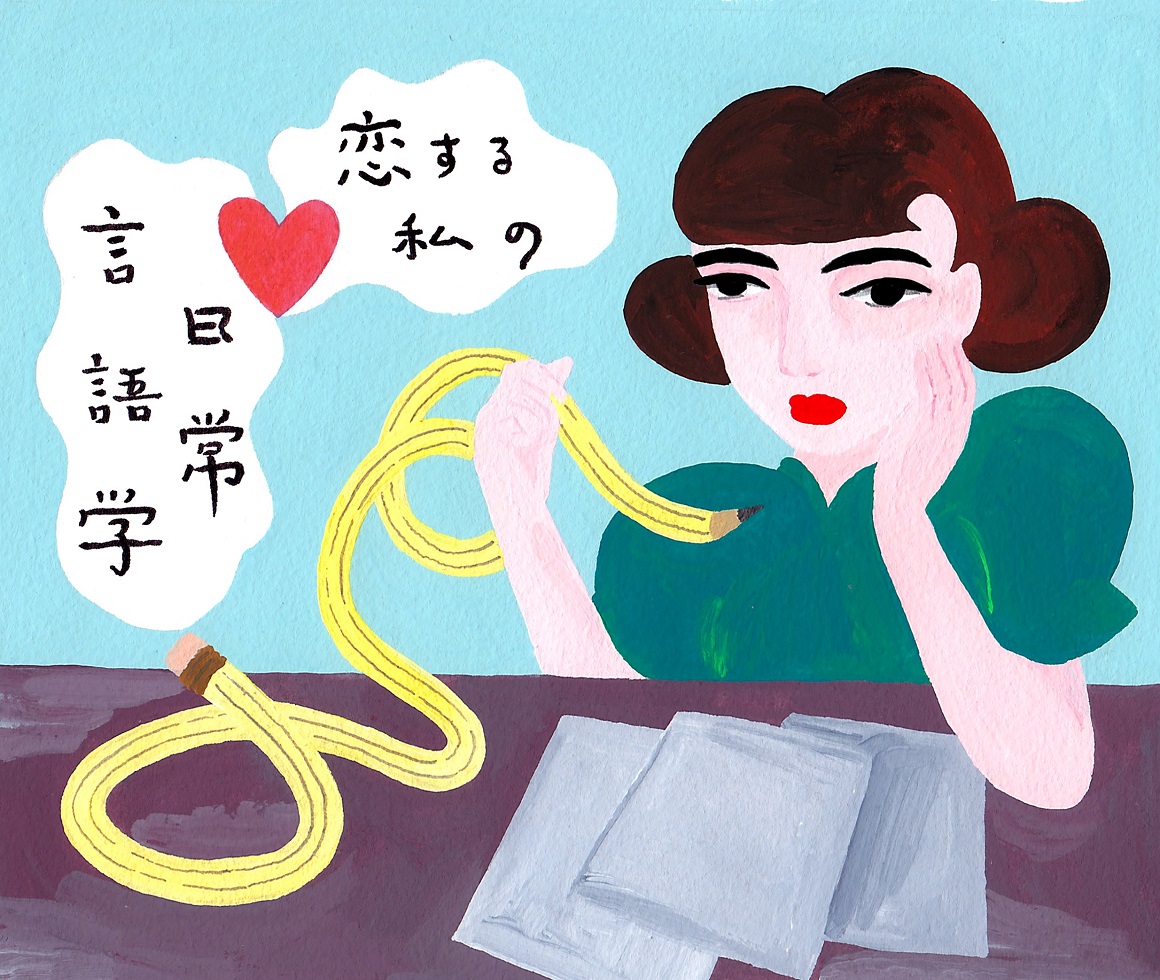Ordinary Language School for Lovers is a column on the theme of love and language. The Ordinary Language philosophy school was created by a group of scholars at Oxford University. According to the Encyclopedia Nipponica, “they followed a methodology that considered the analysis of ordinary language to be the central goal of philosophy.” In this ongoing column inspired by that school of thought, Takayuki Kiyota and Tomoko Ogawa discuss a wide range of issues related to the topic of love and romance.
Kiyota has listened to countless stories about love and romance as the founding member of Momoyama Shoji, an organization that lends an ear to people who want to talk with someone about their love life. Kiyota and other members of Momoyama Shoji then draw on those stories to write columns, create radio shows, and produce other media that explore issues like romance and gender. Ogawa is a film critic who co-wrote Everyone’s Top 100 Romance Films, and she is also writer who specializes in listening to the stories that people tell.
Do you have trouble communicating with that special someone? Or do you and with your romantic partner talk past each other? It’s possible that your choice of words might be the root of the problem.
Vol. 1
What kind of feeling is “suki,” exactly? Is it “like,” or is it “love”?
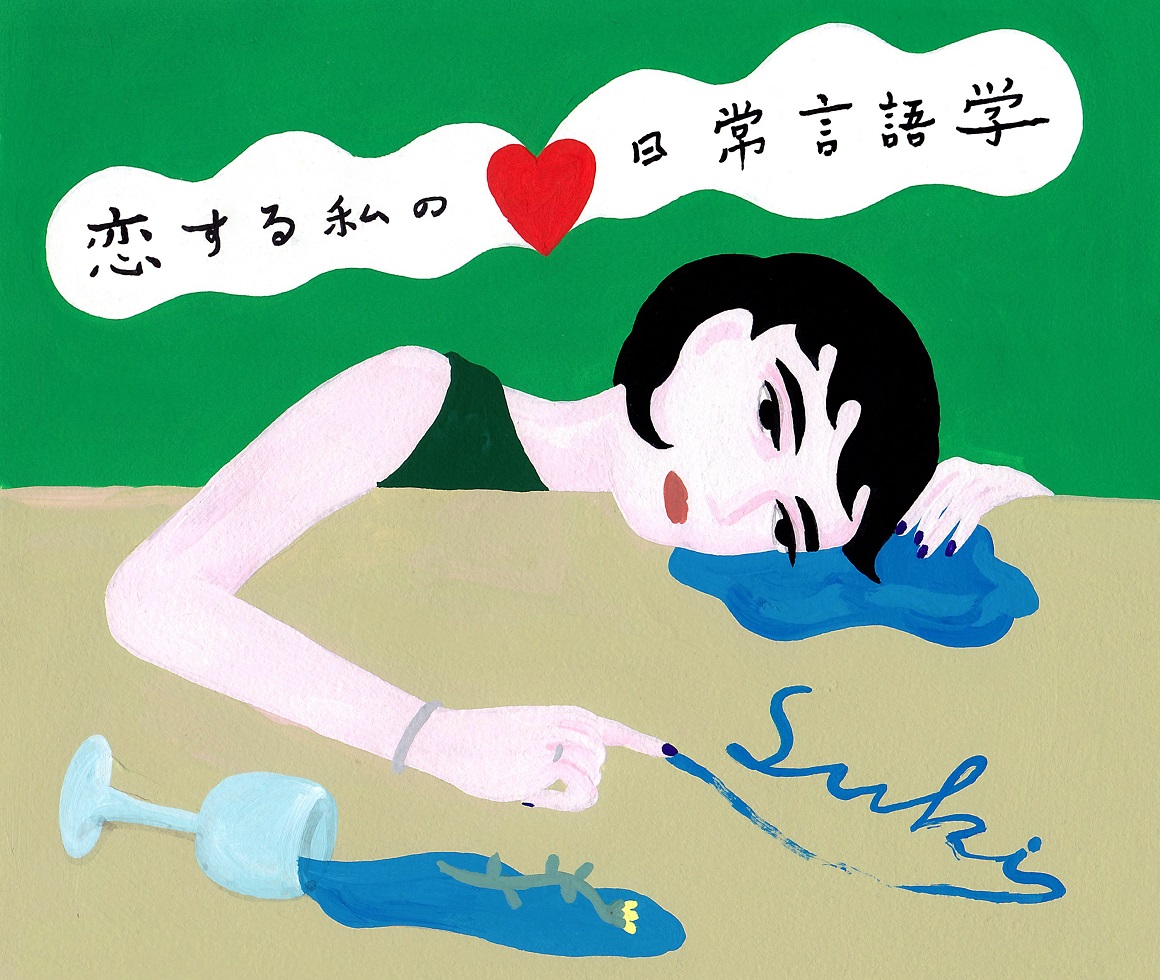
Bragging about an emotionally abusive husband
Takayuki Kiyota (TK): In our previous installment, we introduced the concept of this column, and we explained our basic approach. This installment is where we really get started. We’re going to discuss what’s so complex and interesting about the Japanese word “suki,” which has a range of meanings including “like” and “love.” That being said, the word feels kind of juvenile, so it’s kind of an embarrassing topic for two full grown adults to discuss with a straight face. (Laughs.)
Tomoko Ogawa (TO): To start off by putting things simply, we both feel like “suki” is an extremely loose word. How are we even using such a vague and polysemic word as part of our everyday language? That’s the issue with “suki” that we’d like to discuss. I think that it might even be the case that, as a result of the word “suki,” people are unable fully comprehend each other’s feelings. It maybe even causes people to talk past each other.
TK: Right. To think through this issue, I wanted to start off with a concrete example by sharing a story someone told me. I listen to people talk about their love life as part of my work with Momoyama Shoji, and one day a woman in her 50s came in for a consultation. She was thinking about divorcing her emotionally abusive husband. He cheated on her all the time, he blew a ton of money on pachinko gambling parlors, and he would scream at her whenever she wanted to try to talk about it. She felt completely exhausted by her life with her husband. Her only child was going off to college soon, and she was thinking that might be the right time to get a divorce. But, before that, she wanted to vent all of her frustrations about her husband.
TO: I get it. Sometimes you just want to talk about what’s going on in your life to a completely uninvolved third party.
TK: But, in the middle of her story, she did something I didn’t expect. I thought it would just be a laundry list of all the terrible things he did. But, then, she also started to brag about him. She told me, “He’s so good looking,” “He was really popular with the girls when he was younger,” and, “He has a nice side, too.”
TO: What was that about?
TK: By the time she was done telling her story, I understood what was going on. She said her husband used to be a bartender. He was so popular that the bar was always full of women who were into him. She was one of them, and she was proud that she had defeated all of her rivals to win his heart. She said she felt like she was living in a dream come true. She thought, “I didn’t have any confidence in myself as a woman, and he chose me! I can’t believe it!” By the end of her story, she was speaking through tears, saying, “I still do love (suki) my husband” and “I wish he would apologize for everything and that we could still be together.”
TO: That’s a lot to process. We can’t be prescriptive about her feelings, but I think it’s worthwhile to spend some time ruminating over this anecdote. There are a number of issues that it brings to mind. For example, it seems that, from her perspective, this was maybe a kind of Cinderella story. She was “chosen” by her husband, and, in that way, it was a real success story for her. Also, maybe her victory “as a woman” over her rivals had become a source of emotional support for her. I get the sense that maybe those feelings were part of what she was describing as “love” (suki).
TK: You could be right. The way that she would brag about her husband throughout her story might be an expression of that. And she did say that, to be frank, there was a part of her that felt like, “I’m the one he always comes back to in the end” and “He can’t live without me.”

A lack of variety of words to express love and affection
TO: So, I want to talk about a scene from the comic book 1122: For a Happy Marriage by Peko Watanabe. It’s about a couple in a sexless marriage, and they decide to start having an open relationship. The wife, Ichiko, develops feelings for a male escort named Rei, and she hears her inner voice asking her, “Is it love? Or is it lust?” And she rattles off a list of things in response. “That feeling when you see a chunky, fluffy tabby cat,” “that spoon that cost a fortune but feels so nice to eat with,” “spicy green curry,” “the rustling of leaves on a tree,” and “my husband.” She tells her inner self, “I like (suki) all of those things. They spark my joy and fill my heart.”
TK: And Ichiko also says, “There are some human emotions you just can’t put a name to, right?”
TO: I think that, in other words, she’s saying that there are many different kinds of “suki.” For example, “suki” could be describing a feeling of rejuvenation or affection, or stimulation or comfort, or even true love, among other things. I really related to that. There are so many different types of “suki.” Don’t you even sometimes think there’s a kind of “suki” where you feel like, “I have a huge crush on them, but also there’s also a tiny part of me that has a really bad feeling about this”?
TK: Oh, definitely. “Suki” really is such a vague and polysemic word. The flipside of this is that it’s kind of incredible that we just use “suki” to express such a tangled-up cluster of feelings that are so complicated and diverse and unstable.
TO: Yeah. I was thinking about why that is, and I think the problem is that the Japanese language has a lack of variety of words to directly express love and affection. Maybe this is because people think that it’s gauche to express affection too directly, or maybe they just think it’s too embarrassing, even if they don’t take it quite as far as the probably apocryphal anecdote of the time when novelist Soseki Natsume supposedly translated “I love you” as, “The moon looks beautiful tonight.” In any case, Japanese has so many ways to express love and affection that are context dependent or euphemistic. However, in English, for example, if you flip through the dictionary, you can find so many different words expressing love and affection that include some element of “suki.” I think some of the most well-known English words along these lines include “like,” “love,” “want,” and “need,” but there’s also “affection,” “intimacy,” “obsession,” “acceptance,” etc.
TK: There’s a book called The Basics of Erotic English by Mari Yoshihara, a scholar of American culture. In her book, she writes about the English word “crush.” It describes infatuation, or falling in love at first sight. She explains that “to develop a crush, it is not necessary to know someone particularly well or to even have successfully communicated with them before.”
TO: Right. When I was in college, I remember constantly hearing the phrase “have a crush on (someone).”
TK: It’s amazing that they have a word for such a specific feeling. English is incredible! (Laughs.)
Does a rich vocabulary enable you to explore your emotions?
TK: This brings us to the topic of verbalizing feelings. According to the book Research on the Social Majority (by Satsuki Ayaya et al.), verbalizing feelings begins to occur only once (1) “embodied comprehension in response to events” and (2) “verbal comprehension based in a social context” join together.
(1) Physical reactions. For example: When your heart skips a beat, you get goose bumps, you get a stomach ache, or your shoulders relax
(2) Creating meaning with words. For example: “I’m in love with X,” “X makes me nervous,” or “I’m mad at X.”
TO: That makes so much sense. When you get an uneasy feeling and your thoughts are clouded, it’s such a relief when you figure out how to put your feelings into words. Verbalizing your feelings allows you to share them with another person for the first time.
TK: The bodily reaction always comes first, and then the process of searching for words begins. When you think about it, ideally you would want to search for words from a rich vocabulary that corresponds to the truly expansive variety of potential physical reactions. But, instead, we end up just slapping the label “suki” on so many of those reactions.
TO: As far as that’s concerned, I think that maybe English has a much wider variety of expressions. English might allow you to verbalize your feelings with greater specificity, compared to Japanese.
TK: I get the sense that having a larger vocabulary would make it easier to explore your feelings. “Is what I’m feeling ‘love’? Or is it ‘desire’?” I feel like trying to express all of that in Japanese with just “suki” is not really possible. Even when we’re speaking Japanese, sometimes we bring in English terms to clarify what we mean. Sometimes we say things like, “I think this is more of a “like” type of “suki” than a “love” type of “suki.” It would be nice to have a way to make our feelings even more clear, though.
TO: But, whether you’re speaking in English or in Japanese, words are never a one-size-fits-all tool. It’s impossible to describe your thoughts and feelings with 100% accuracy. As soon as you put your feelings into words, you’re necessarily cutting out some elements and exaggerating others. I don’t think it’s possible to either perfectly verbalize your emotions or to achieve a state of perfect mutual understanding. So, I think that, instead, it’s important to talk things out thoroughly. This allows us to learn about each other from a variety of perspectives. Through this process, you gradually begin to develop an understanding of the particulars of both your own feelings and your partner’s feelings.
TK: Absolutely. To bring the conversation back to the woman’s story from earlier, I think that it would be for the best if she were to temporarily rip that big label marked “suki” off of the way she feels about her husband. Instead, by using a wide variety of different words, she could compartmentalize her feelings with more specificity. I think that maybe this might have given her a clearer perspective on her future course of action. That being said, she came to talk to us in the first place precisely because she couldn’t talk with her husband... So, that really complicates things.
TO: It would be ideal if she and her husband could have a serious discussion, together. I imagine she’ll get better and better at verbalizing her feelings as she talks about her situation with more and more people, like she did by coming to Momoyama Shoji for a consultation. Then, maybe she’ll be able to analyze her own emotions with a clear head. Let’s hope so, anyway.
TK: Well, this sure ended up being a wide-ranging discussion. I hope that, by reexamining the way we use the word “suki” casually in our everyday lives, our conversation shed some light on the issue of how feelings and words are connected. Until next time, thanks for reading!
Contributors

Takayuki Kiyota
Writer
Founding member of Momoyama Shoji, an organization that collects people’s stories about their love life
Born 1980, in Tokyo. Graduate of Waseda University Department of Literature. Has conducted interviews with over 1200 people on the topic of love and relationships. Examines the theme of love and gender in written work, on radio programs, and in other formats. Major publications include Everything About Romance Except How to Be Lucky at Love and I Thought You Wanted Me to Do That!: An Introduction to Failure for Men. His most recent work, Farewell to Guys Like Us, was published in July, 2020.
Illustration by Emi Ozaki.
https://twitter.com/momoyama_radio

Tomoko Ogawa
Writer
Born 1982, in Tokyo. Graduate of Sophia University Department of Comparative Literature. Interviewer, film critic, columnist, and translator. Publications include Everyone’s Top 100 Romance Films.
https://www.instagram.com/tomokes216
https://twitter.com/tometomato
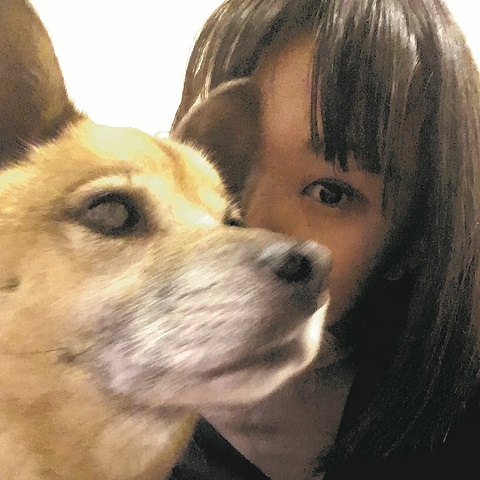
Momoko Nakamura
Illustrator
Born 1991, in Tokyo. Graduate of Kurasawa Design School Department of Visual Design. Worked at a graphic design company, then began a career as an illustrator. Has done illustration work across a number of fields and for a wide variety of clients including book design, magazines, music, clothing brands, and textiles. Publications include HEAVEN, a book of collected illustrations.
https://www.instagram.com/nakamuramomoko_ill/



